Responsible iGaming AI: How Technology is Making Online Casinos Safer

The online casino industry has a problem. Players are losing more than money – they're losing control. But artificial intelligence is changing that story, one algorithm at a time.
Here’s what you need to know…
The Hidden Crisis in Online Casino Gaming
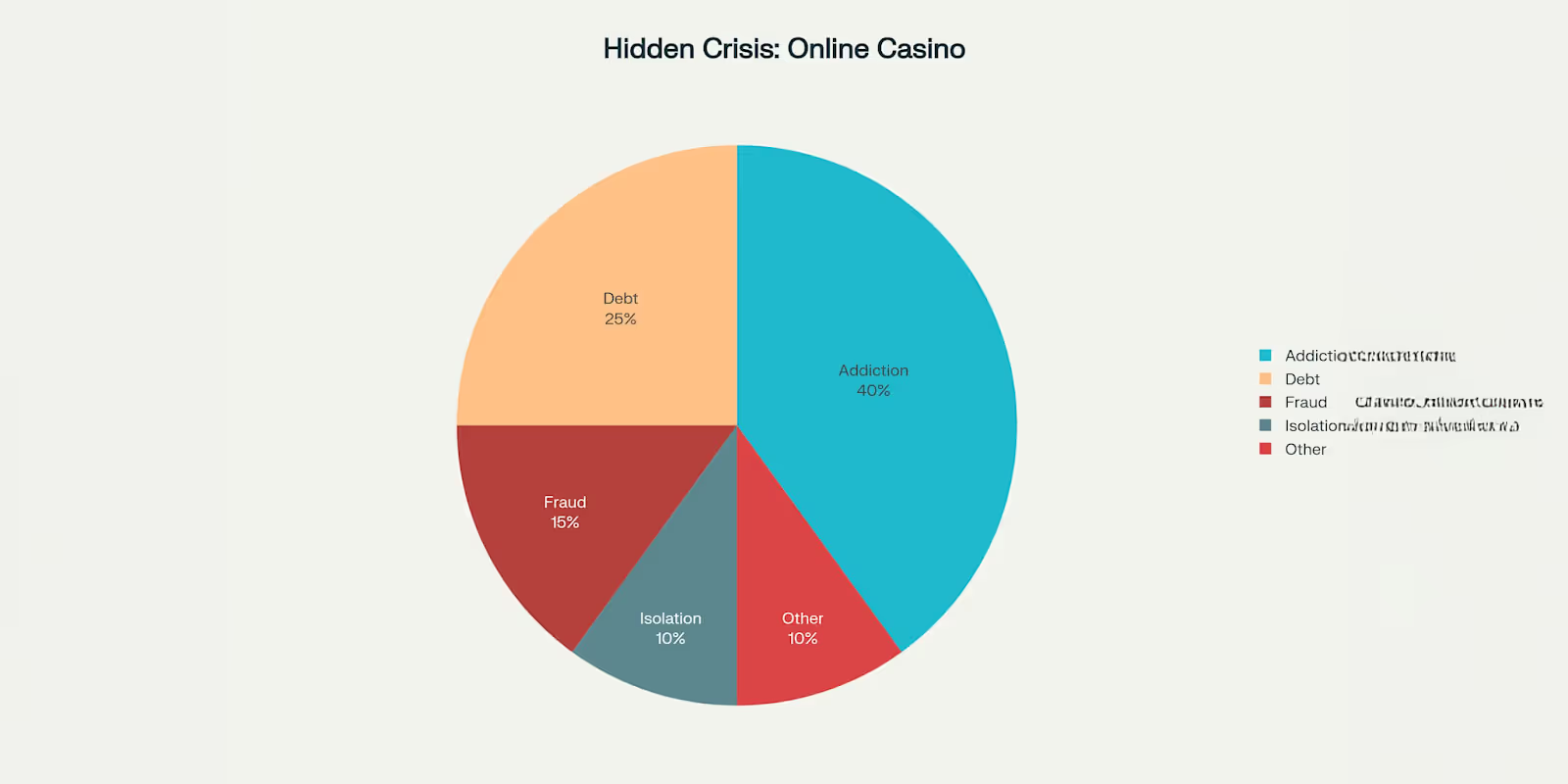
Problem gaming affects millions worldwide. In the United States alone, approximately 2-3% of adults struggle with gaming addiction. That's roughly 6-9 million people whose lives are impacted by uncontrolled online casino activity.
Traditional approaches to player protection have relied on self-reporting and manual oversight. Players set their own limits, exclude themselves when needed, and casinos hope for the best. This system has obvious flaws. People struggling with addiction don't always make rational decisions about their gaming habits.
The industry needed a better approach. Enter artificial intelligence.
How AI Spots Warning Signs Before Players Do

Modern AI systems can analyze thousands of behavioral data points in real-time. They're watching for patterns that human operators would miss entirely.
Behavioral Pattern Recognition
AI algorithms examine multiple factors simultaneously:
- Betting amounts and frequency changes
- Time spent on different games
- Payment method switching patterns
- Late-night gaming sessions
- Loss-chasing behaviors
- Account depletion frequency
Professional AI software incorporates numerous behavior indicators to detect complex patterns associated with problem gaming. These systems can flag most problem gaming cases that human experts would identify.
Real-Time Risk Assessment
They assign risk scores from 0 to 100 based on player behavior. Once a player crosses the first threshold, compliance officers receive automatic alerts. The process happens instantly, without human intervention.
Subtle Warning Signs
AI catches behavioral changes that seem insignificant individually but become concerning when viewed together. A player who typically games for 30 minutes might suddenly play for three hours. Their usual $20 bets might jump to $200. They might switch from credit cards to multiple payment methods.
Each change alone might not raise red flags. Combined, they paint a picture of escalating risk.
Automated Interventions That Actually Work

Detection is only half the battle. The real value comes from automated responses that happen at the right moment.
Personalized Messaging Systems
AI-powered platforms can send customized messages based on individual player profiles. Instead of generic warnings, players receive personalized notifications that address their specific gaming patterns.
Dynamic Limit Adjustments
Advanced systems automatically adjust deposit, time, or loss limits based on evolving player behavior. If someone's gaming patterns suggest increasing risk, the system can tighten restrictions without manual intervention.
Cooling-Off Periods
AI can suggest voluntary "cool-off" periods before risks escalate. The system might notice erratic betting patterns and recommend a 24-hour break, presenting it as a helpful suggestion rather than a punitive measure.
{{cta-banner}}
Stepped Intervention Protocols
Modern systems use graduated responses:
- First threshold: Automated notifications
- Second threshold: Mandatory breaks
- Third threshold: Account restrictions
- Final threshold: Professional support referrals
Regulatory Compliance Made Simple

Regulators worldwide are embracing AI-driven responsible gaming measures. The European Union's AI Act classifies gambling addiction detection systems as potentially high-risk applications, requiring rigorous data governance and transparency measures.
Malta's Leadership Position
Malta Gaming Authority has been at the forefront of responsible gaming policy. Their framework includes:
- Self-exclusion programs
- Deposit and time limits
- Staff training requirements
- Access to support services
AI systems help operators comply with these requirements automatically, reducing human error and ensuring consistent application of safety measures.
Cross-Jurisdictional Challenges
Different countries have varying regulations. AI systems must adapt to local requirements while maintaining consistent player protection standards. This flexibility is crucial for operators serving multiple markets.
Audit Trail Generation
AI systems create detailed logs of all detection events and interventions. These records help operators demonstrate compliance during regulatory reviews and provide transparency for both players and authorities.
Real-World Success Stories
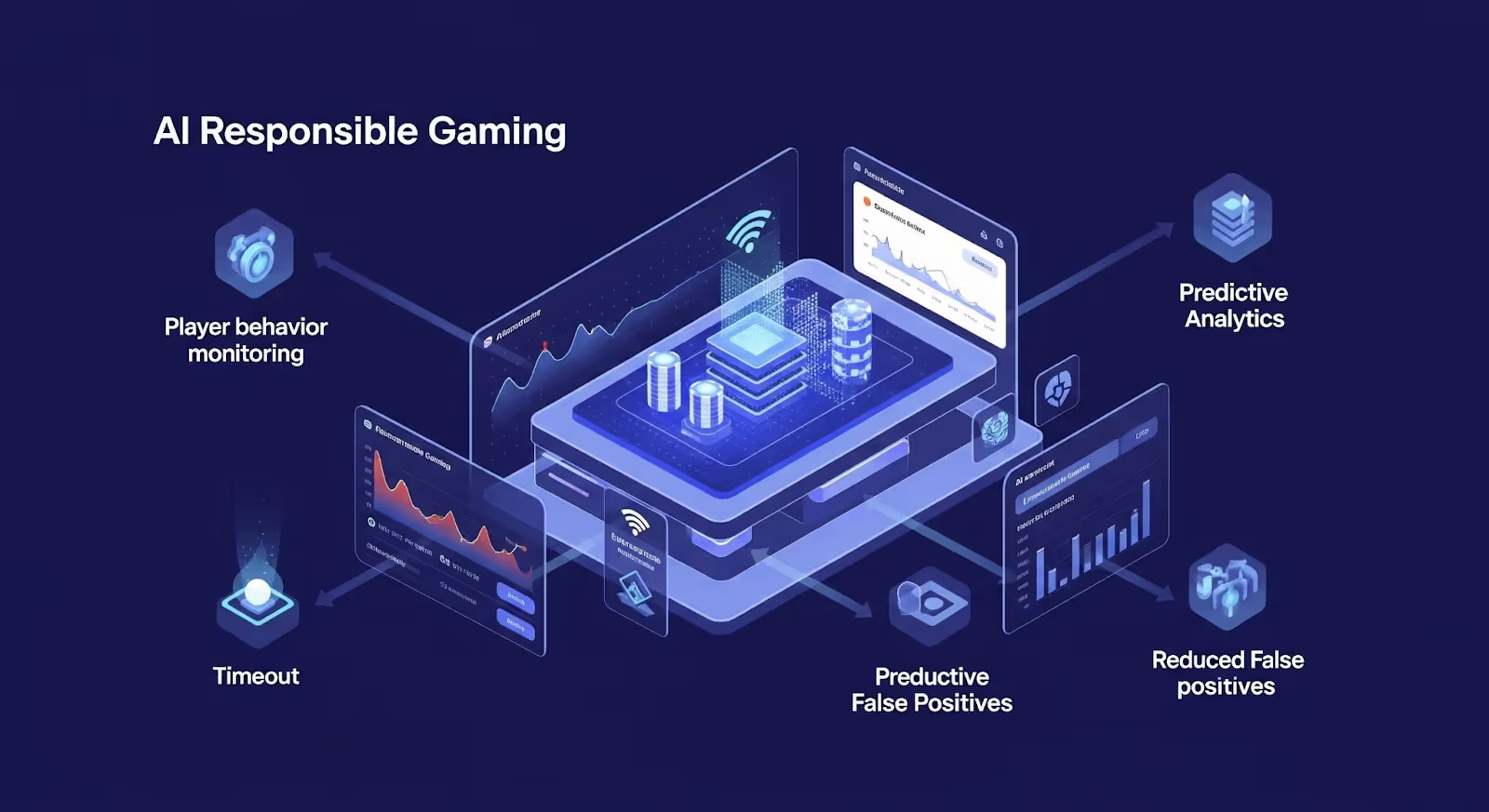
Companies are already seeing positive results from AI-powered responsible gaming systems.
Some platforms monitor player behavior across slots, electronic roulette, table games, and sports betting. The systems help operators identify at-risk players earlier and implement more effective interventions.
Predictive Analytics in Action
According to research, AI algorithms can predict self-reported problem gaming with high accuracy based on player tracking data. Machine learning models analyze wagering patterns, deposit frequency, and session duration to identify players at risk.
Reduced False Positives
Advanced AI systems minimize false alarms that could disrupt innocent players. The technology balances player protection with user experience, ensuring that interventions feel helpful rather than intrusive.
The Technology Behind the Solutions
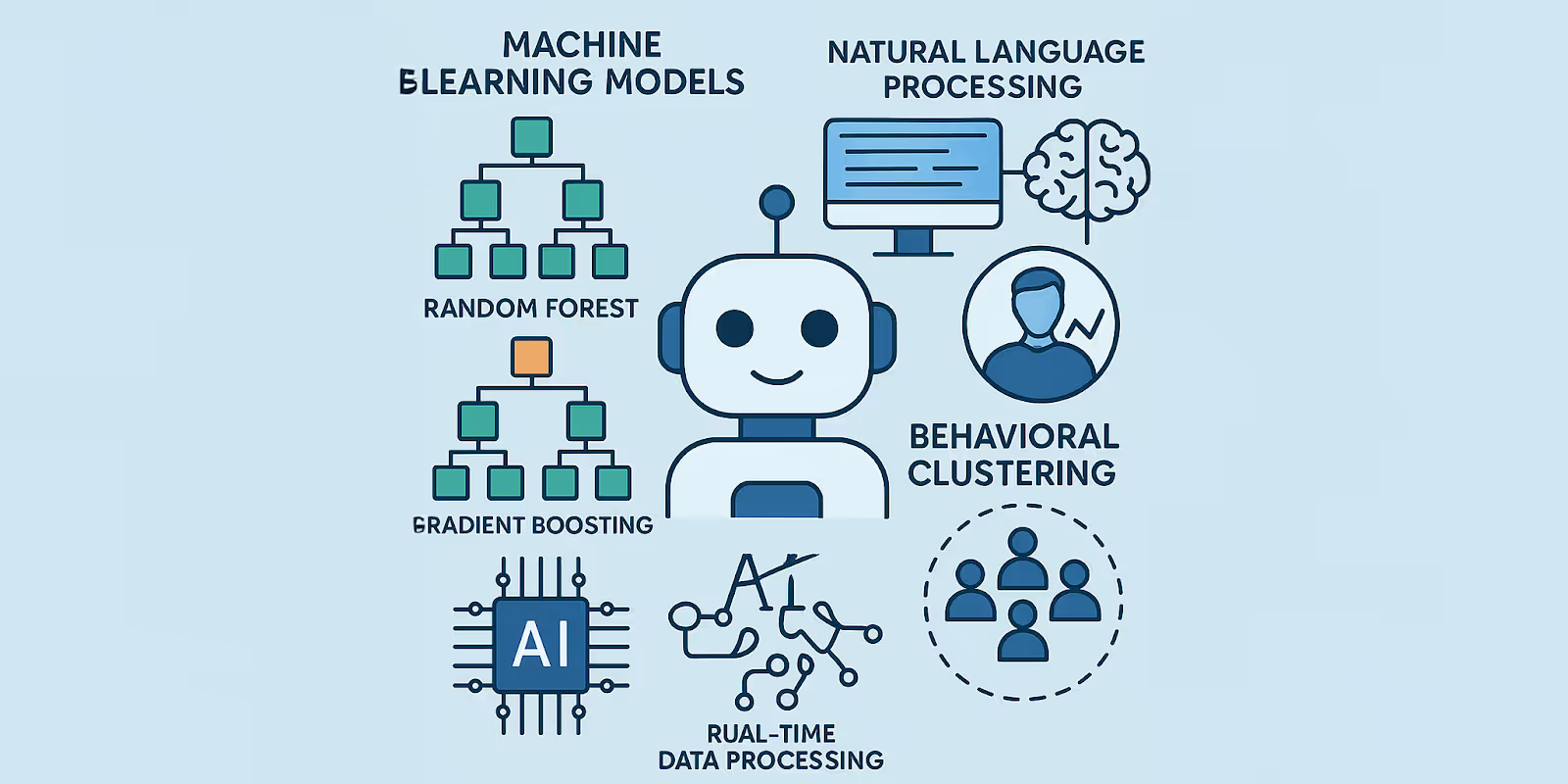
Machine Learning Models
Modern systems use random forest and gradient boost algorithms to analyze player data. These models can identify subtle patterns that traditional rule-based systems would miss.
Natural Language Processing
Some platforms incorporate NLP to analyze player communications and chat. This adds another layer of behavioral insight for risk assessment.
Real-Time Data Processing
AI systems process massive amounts of data continuously. They can analyze hundreds of variables simultaneously and respond to changing patterns within milliseconds.
Behavioral Clustering
Advanced algorithms group players with similar risk profiles. This allows for more targeted interventions and better resource allocation.
Privacy and Ethical Considerations

AI-powered responsible gaming systems must balance player protection with privacy rights.
Data Minimization
Systems collect only necessary data for risk assessment. Players maintain control over their personal information while still receiving protection benefits.
Transparency Requirements
Operators must clearly communicate when AI monitoring is active. Players should understand how their data is being used and what triggers interventions.
Human Oversight
Despite automation, human experts remain involved in the process. Complex cases require human judgment, and players can always request manual review of automated decisions.
Challenges and Limitations
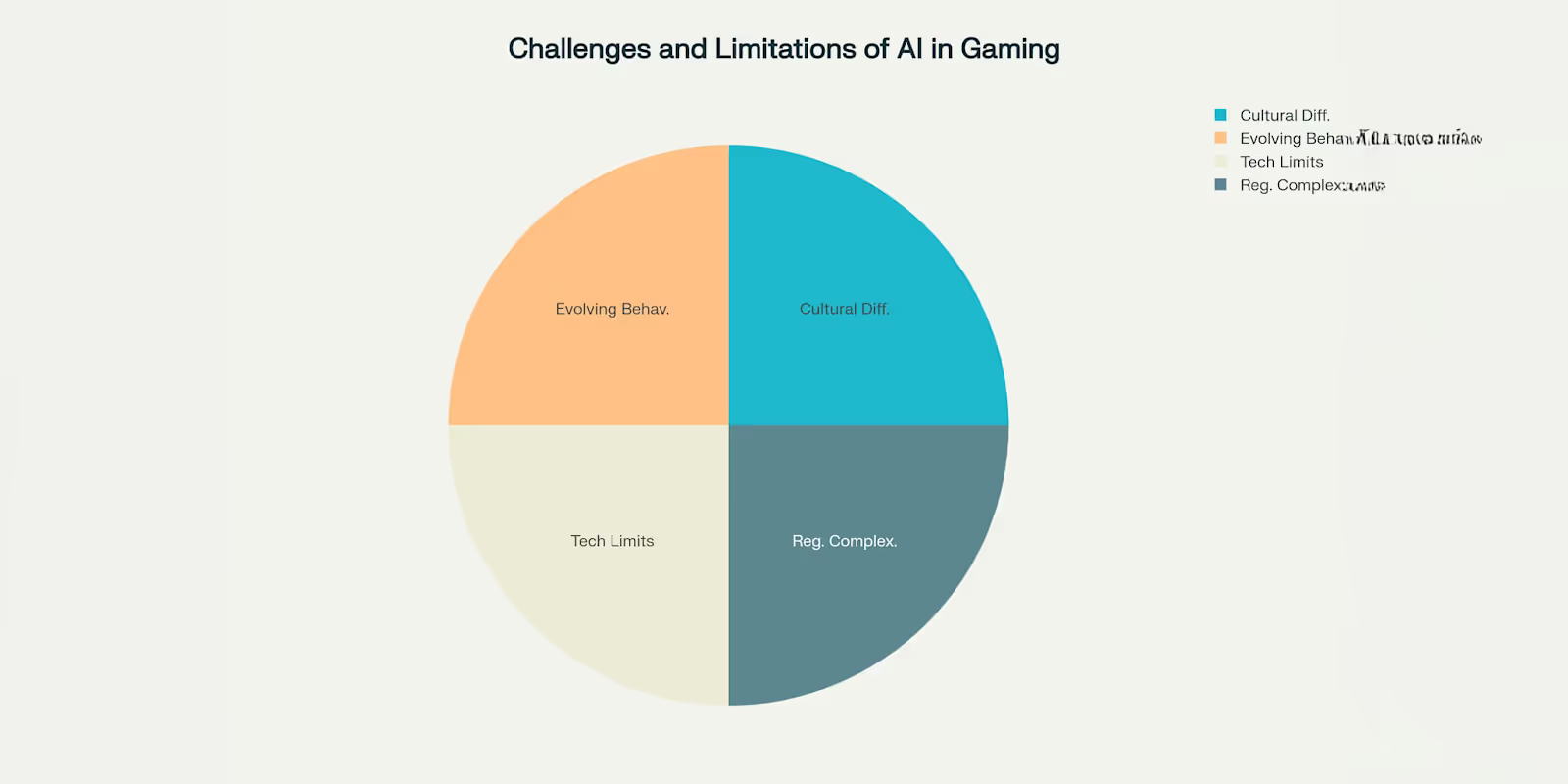
AI systems aren't perfect. They face several ongoing challenges.
Cultural Differences
Problem gaming behaviors vary across cultures and demographics. AI systems must account for these differences to avoid bias and ensure fair treatment.
Evolving Player Behaviors
As AI systems become more sophisticated, some players may adapt their behaviors to avoid detection. This creates an ongoing arms race between protection systems and problematic gaming patterns.
Technical Limitations
AI systems require high-quality data to function effectively. Poor data quality can lead to inaccurate risk assessments and inappropriate interventions.
Regulatory Complexity
Different jurisdictions have varying requirements for AI transparency and explainability. Operators must navigate complex regulatory landscapes while maintaining effective protection systems.
The Future of AI in Responsible iGaming
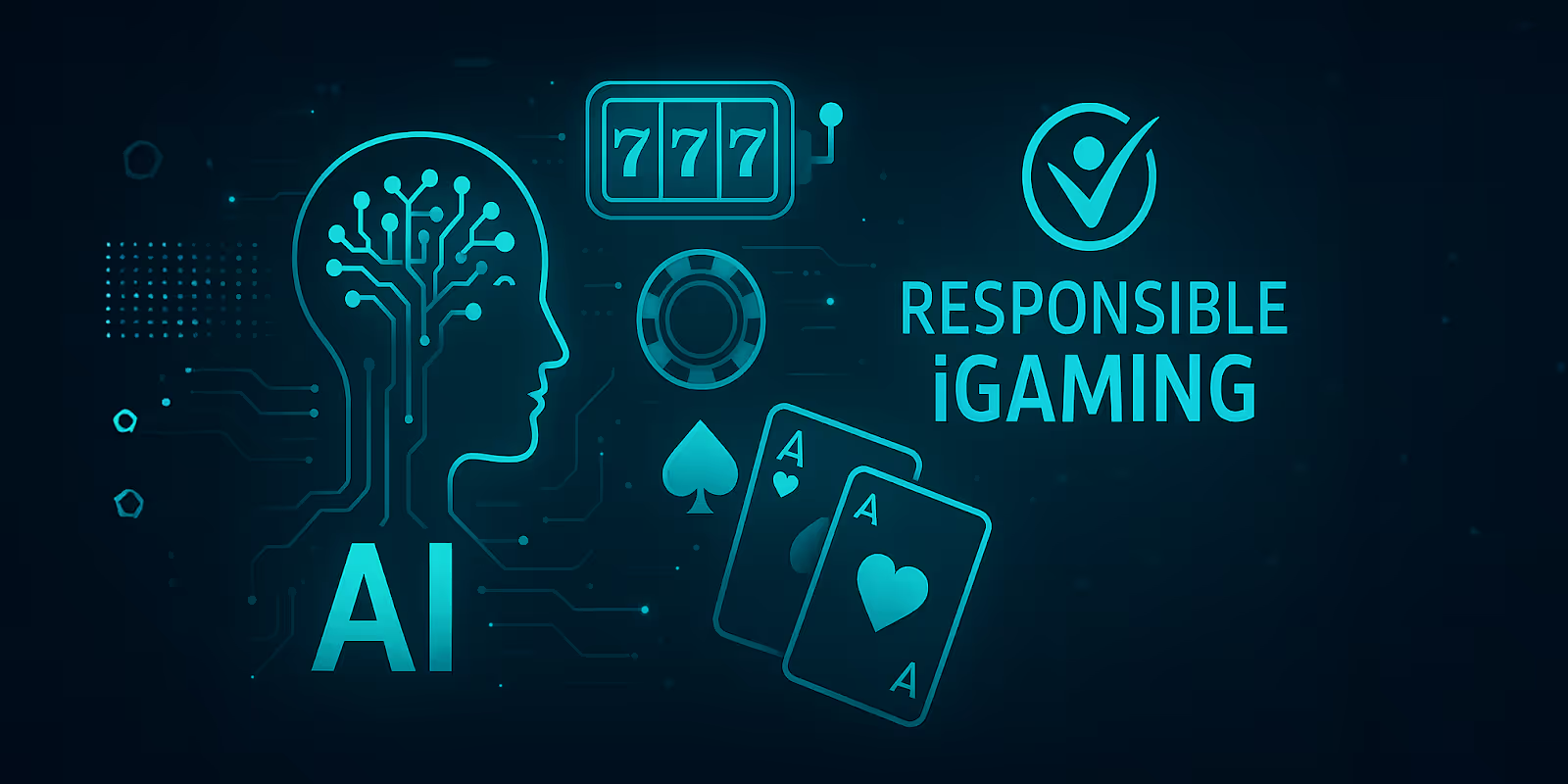
The tech continues to evolve rapidly.
Enhanced Personalization
Future systems will provide even more personalized interventions. AI will learn individual player preferences and communication styles to deliver more effective messages.
Cross-Platform Integration
Next-generation systems will track player behavior across multiple platforms and operators. This comprehensive view will provide better protection for players who use multiple gaming sites.
Predictive Capabilities
Advanced AI will predict problem gaming risk weeks or months in advance. This early warning system will enable proactive interventions before issues develop.
Integration with Support Services
AI systems will connect directly with counseling services and support organizations. This smooth integration will ensure that players receive professional help when needed.
Smartico.ai: Upgrading iGaming with Unified CRM and Gamification
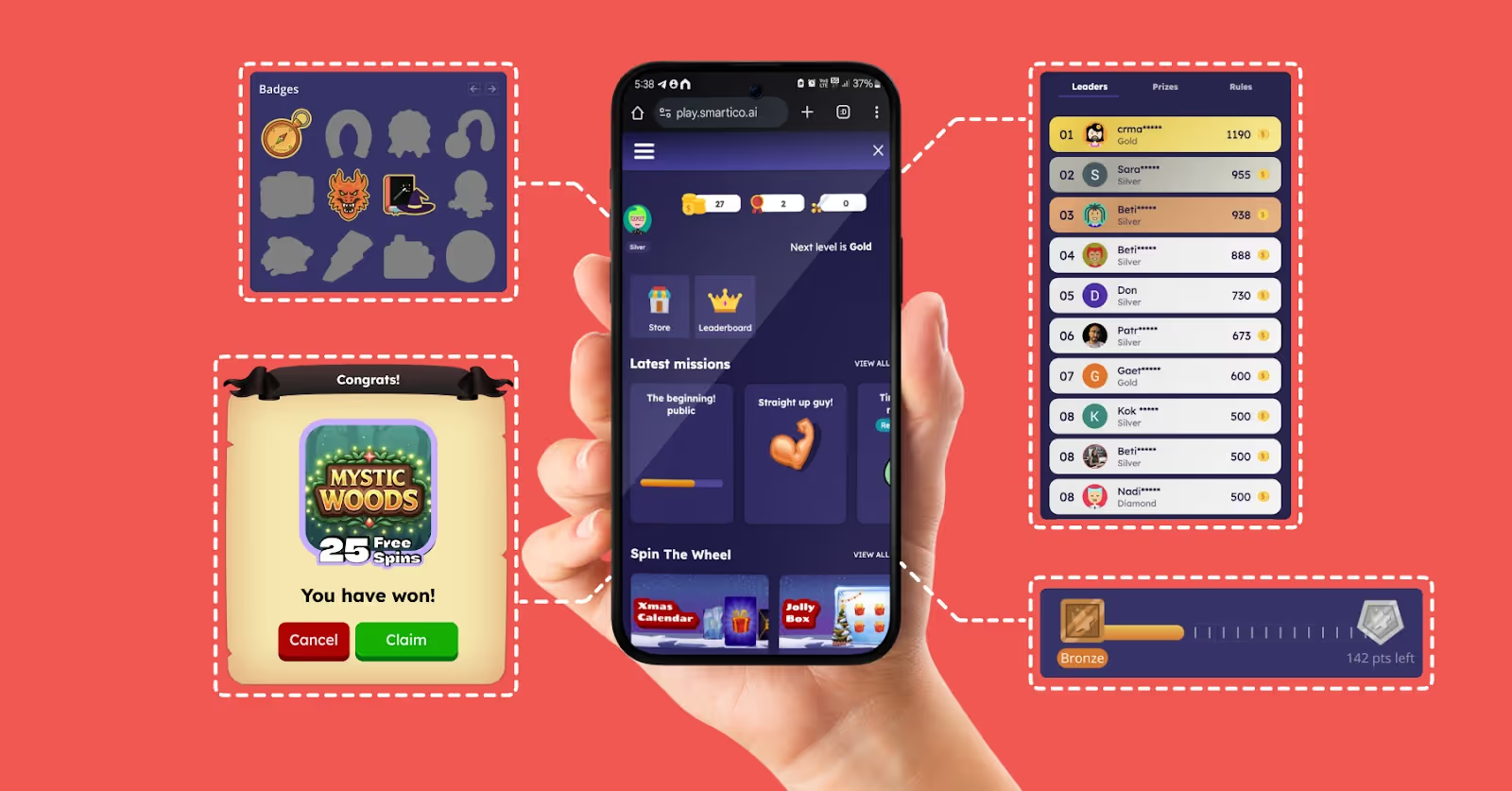
Smartico.ai stands as the first unified CRM Automation and Gamification platform specifically designed for the iGaming industry. Founded in 2019 by four passionate friends who recognized the need for a simpler, more flexible solution for player engagement, Smartico has grown into a comprehensive platform serving hundreds of global operators across gambling, sports booking, lottery, and forex verticals.
What Makes Smartico.ai Different
Unlike traditional solutions that force operators to juggle multiple platforms, Smartico delivers CRM automation, gamification, and engagement tools in a single, real-time platform. This unified approach eliminates the complexity and costs associated with managing separate systems while providing seamless integration across all player touchpoints.
The platform's AI-powered models transform player data into actionable predictions, helping operators optimize engagement, prevent churn, and deliver rewards at the perfect moment. From predictive modeling and LTV prediction to churn prevention and RFM segmentation, Smartico's AI capabilities enable operators to create hyper-personalized experiences that drive retention and revenue.
Comprehensive Gamification Tools
Smartico offers a complete gamification ecosystem featuring customizable missions, level-based progression, real-time leaderboards, competitive tournaments, collectible badges, and a flexible marketplace where players can redeem points for bonuses and rewards. The platform includes free-to-play games like Loyalty Wheels, Scratch Cards, and Daily Loot Boxes, all designed to boost engagement without additional development costs.
The bonus engine allows operators to lower bonus costs through rewards tailored to player behavior, while customizable jackpots - both player-funded and operator-funded - can enhance any game from any provider. All gamification tools can be precisely targeted to specific user segments, ensuring maximum effectiveness and protection against bonus abuse.
Partnership Beyond Technology
What truly sets Smartico apart is its commitment to partnership. Every client receives a dedicated Success Manager who provides tailored onboarding, training, and ongoing support throughout the entire relationship. The platform's pricing is based on monthly active users and includes both CRM automation and gamification features with no hidden fees or separate modules.
Integration typically takes about three weeks, with Smartico handling the heavy lifting while providing direct support to technical teams via Slack or Google Meet. The platform supports unlimited brands within a single instance at no additional cost, making it ideal for operators managing multiple properties.
Proven Results
Client testimonials highlight Smartico's effectiveness, with operators reporting major increases in lifetime value through gamification implementation. It’s control group measurements demonstrate significant improvements in player retention, gaming activity, and overall engagement metrics.
Ready to transform your player engagement strategy? Discover how Smartico.ai can unify your CRM and gamification needs while driving measurable results. Schedule your personalized demo below and see why hundreds of operators worldwide trust Smartico as their strategic partner for growth.
{{cta-banner}}
Conclusion
AI is transforming online casino safety from reactive to proactive. Instead of waiting for players to self-report problems, intelligent systems identify risks early and intervene appropriately.
The technology isn't about restricting player freedom, but about preserving it. By catching problems early, AI systems help players maintain control over their gaming habits and continue enjoying online casinos responsibly.
As regulatory frameworks evolve and AI capabilities advance, we can expect even more sophisticated protection systems. The goal remains the same: ensuring that online casino gaming remains entertaining, safe, and sustainable for everyone involved.
The future of responsible gaming is here, and it's powered by artificial intelligence.
FAQ
Q: How accurate are AI systems at detecting problem gaming behaviors?
A: Leading AI systems can flag the majority of problem gaming cases that human experts would identify. However, accuracy varies depending on the specific algorithms used and the quality of data available.
Q: Can AI systems make mistakes and flag innocent players?
A: Yes, AI systems can generate false positives. However, modern systems are designed to minimize these errors while maintaining effective protection. Players can always request human review of automated decisions.
Q: Do AI monitoring systems violate player privacy?
A: Responsible AI systems comply with data protection regulations like GDPR. They collect only necessary data for risk assessment and provide transparency about how player information is used.
Q: Can players opt out of AI monitoring?
A: This depends on the specific operator and jurisdiction. Some regions may require AI monitoring for all players, while others might allow opt-out options. Players should check with their preferred operators for specific policies.
Q: How quickly do AI systems respond to concerning behaviors?
A: Modern AI systems analyze player behavior in real-time and can trigger interventions within milliseconds. However, the specific response time depends on the complexity of the analysis and the intervention required.
Q: Are AI responsible gaming systems mandatory?
A: Requirements vary by jurisdiction. Some regions are implementing mandatory AI monitoring for gambling operators, while others treat it as a best practice. The regulatory landscape continues to evolve.
Q: What types of interventions can AI systems implement?
A: AI systems can send personalized messages, adjust spending limits, suggest cooling-off periods, restrict account access, and connect players with support services. The specific interventions depend on the risk level and player preferences.
Q: How do AI systems handle players who use multiple gaming sites?
A: Currently, most AI systems work within individual operators. However, future developments may include cross-platform monitoring and shared databases to provide comprehensive player protection.
Did you find this article helpful? If so, please consider sharing it with other industry professionals such as yourself.
Ready to use Smartico?
Join hundreds of businesses worldwide engaging players with Smartico.










